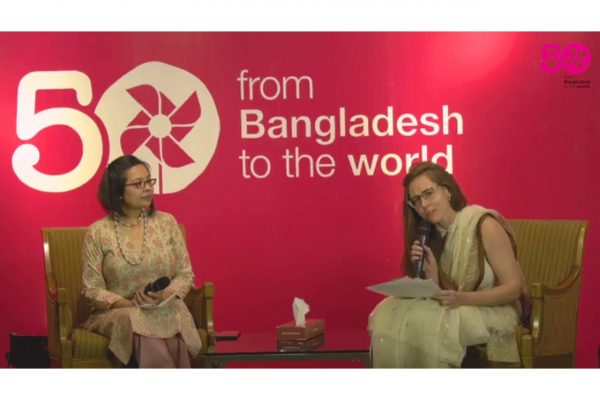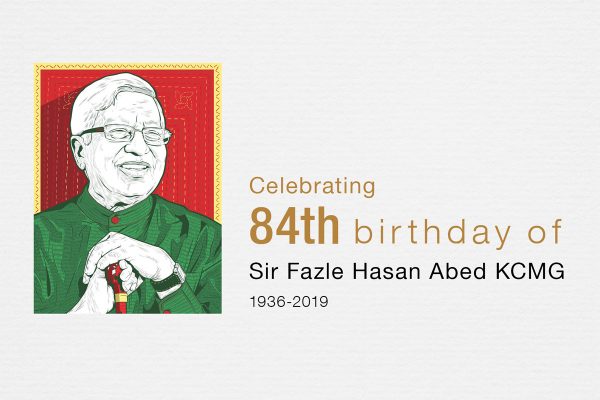A new data model for a more pro-poor national budget
Reading Time: 3 minutes
A significant number of talk shows and heated debates preceded the unveiling of Bangladesh’s national budget. However, discussions so far have remained among a particular group of people: business tycoons, intellectuals and the elite.
This prompts the question – where is the voice of ordinary Bangladeshis, and are we doing enough to include them in the decision-making processes?
The impact of budget has always been discussed at the macro level. The micro-level impact of the budget plan has hardly been considered. For example, if the price of a particular food item increases, the impact this has on a rural, female-headed family never comes to light. There is no effective tool to examine the micro-level impact either, a reason why it remains largely unexplored. On this very thought, BRAC in collaboration with iSocial a research body working in empowering communities through women-led entrepreneurship and Unnayan Shamannay, a home-grown Bangladeshi non-governmental research organisation, is advocating on the national budget through a robust data model based on relevant macro-economic variables and policy actions.
The first-of-its-kind data model, once fully developed, will help run simulation to check implications of small changes in macroeconomic decisions on household economies and marginalised individuals. Gaps and priorities of the allocation of budget can be measured through the model to make the budget more inclusive.

Since the last 47 years, BRAC has been working for the holistic development of people in poverty, especially at the base of the pyramid. Examining the impact of the budget on these low-income groups is an area of high interest. BRAC aims to influence policymakers for making pro-poor growth faster and inclusive by giving budget a human face.
A nationwide survey was carried out as part of this comprehensive research to identify areas where the impact of the national budget is going to be more intense. The survey was done among a total of 4,800 randomly selected respondents from three economic strata – namely extreme poor, poor and middle income. The survey questionnaire was designed in three categories: effectiveness of social security services, public perception of the national budget, and disaster preparedness and mechanism in the marginalised households.
According to the survey findings, 10% of the respondents receive at least one social security service, while one-third of the receivers of these services are women. It is an apparent misallocation manifested by excessive concentration of beneficiaries in the four social security net programmes (SSNP): old age allowances, widow allowances, disability allowances and freedom fighters’ allowances, which raises a question: are we missing proper representation of other benefit recipients or are there issues with governance of the SSNP distribution?
Regarding public perception about different priorities of the national budget, the survey found that two-thirds of the respondents think prices of essential commodities increase as a result of annual budget announcement which indicates that people perceive national budget negatively. One-fifth of the respondents said that annual budget announcement has little to no impact on their public life. Interestingly, 17% of the respondents do not know what budget is. While asked about the priority sector for budget allocation, 64.5% of the responses was for children’s education and improved academic institutions, while 29.75% of the responses chose employment generation and youth development. These responses reflect that most Bangladeshis are aware of how the national budget affects their realities. However, lack of opportunities obstruct them from having their voices heard.
A press conference titled ‘National Budget 2019-2020: Impact on the poor and extreme poor’ took place at CIRDAP on 25 June 2019 where the new model and the survey findings were shared. The conference was chaired by KAM Morshed, Director of BRAC Advocacy for Social Change, Former Governor Dr Atiur Rahman, prominent economist Dr Nazneen Ahmed and economist and CEO of iSocial, Dr Ananya Raihan.
Several recommendations were made by the panelists, which included creating a mechanism that will monitor budget allocations, creating a pension scheme for day labourers and farmers so that socio-economic development can take place, and increasing initiatives and subsidies in the education, healthcare and youth employment sectors. BRAC, iSocial and Unnoyann Shamannay pledged to continue conducting sophisticated surveys so that the gaps in budget allocations can be identified, and the impact measured through the newly-developed data model. The model may be the key towards making more human-centric budgetary decisions.
Ezzat Tanzila Evana is a Young Professional at BRAC’s human resources and learning division.





